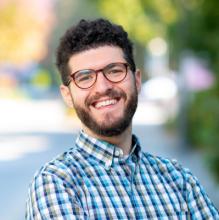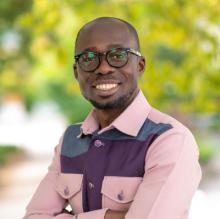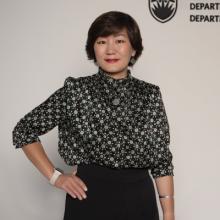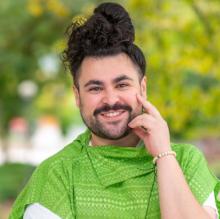Sina’s research aims at understanding the way in which imagination-driven reasoning contributes to thoughts about causal interactions, to learning from errors, and so to our planning. He uses this understanding to throw light on our inter-personal interactions, and on the strengths and weaknesses in our broader political and strategic thinking.
Research Description
Humans have the remarkable ability to imagine alternative ways events may unfold in the future or may have unfolded in the past. In my research, I investigate the question of what factors determine whether we find an imagined, "counterfactual" possibility plausible. By drawing together recent research in philosophy, psychology, and artificial intelligence, I approach this question is by considering the central role of counterfactual thoughts in learning from past mistakes and successes and adjusting the future conduct accordingly. This question finds a range of applications in problems of causal cognition, decision making, emotion regulation, and social practices of responsibility and blame attribution.
What does being a Public Scholar mean to you?
To me, public scholarship has always been woven together with interdisciplinary research. Despite differences in approach and methodology, researchers across different disciplines are often investigating the same phenomena. Our potential expands when we work together. And this is exactly the kind of scholarship that can reach beyond the academy, that can communicate and mobilize knowledge in a manner that is clear, efficient, and accurate.
In what ways do you think the PhD experience can be re-imagined with the Public Scholars Initiative?
The public scholars initiative broadens the horizons of the doctoral degree. It encourages students to look beyond the academy and to come to a fuller understanding of how they can contribute to society not simply through the specific subject matter that they learn, but also through the valuable transferable skills they acquire in the course of their training.
How do you envision connecting your PhD work with broader career possibilities?
Having trained in the biomedical sciences prior to switching to philosophy, I hope that my work can draw on both sets of resources, indicating ways in which philosophical thinking can enrich both front-line scientific research as well as public policy-making.
How does your research engage with the larger community and social partners?
From children’s pretend play to daydreaming later in development, from everyday regrets about past choices to scientific hypothesizing, the range of activities wherein thoughts about alternatives to reality are involved exhibit a striking diversity. By drawing together strands of research in philosophy, psychology, and artificial intelligence, my research engages the larger academic community to illuminate the commonalities underlying these disparate phenomena. In so doing, it is well-poised to contribute to the fields of policy-making, education, and mental health.
Why did you decide to pursue a graduate degree?
During my undergraduate and graduate studies in medical sciences, I became increasingly interested in theoretical issues about modeling cognitive phenomena and, more generally, in questions about scientific discovery, hypothesis-testing and explanation. Pursuing a graduate degree in philosophy seemed like a natural way of following these interests.
Why did you choose to come to British Columbia and study at UBC?
With many faculty members specializing in philosophy of science and philosophy of mind, the philosophy department at UBC is a stimulating environment for those interested in these areas. The close ties between UBC’s philosophy and psychology departments also meant that I could benefit from and partake in exciting interdisciplinary research opportunities.
The public scholars initiative broadens the horizons of the doctoral degree. It encourages students to look beyond the academy and to come to a fuller understanding of how they can contribute to society not simply through the specific subject matter that they learn, but also through the valuable transferable skills they acquire in the course of their training.




